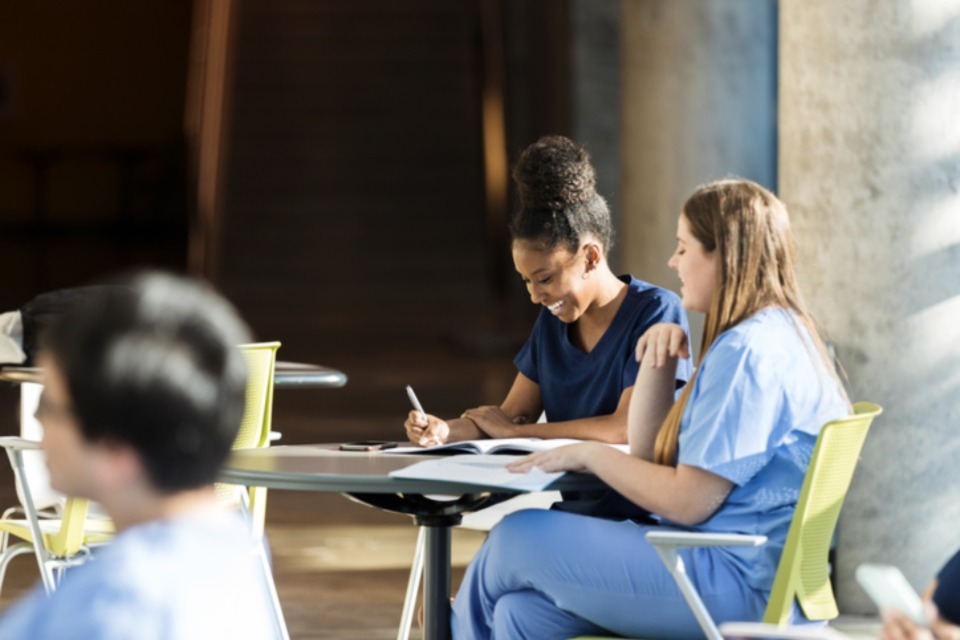08 September 2025
|3 minutes
My first year as a doctor

Starting work as a newly qualified doctor is a milestone that’s hard to fully prepare for. As current F1, Charlotte Smith, nears the end of her first foundation year, she’s spent some time reflecting on what this first year has really been like: the steep learning curves, the emotional highs and lows, and the unexpected moments of connection and growth.
If you're a final-year student wondering what life on the wards is actually like, or a new doctor just finding your feet, these candid reflections will offer some insight, reassurance, and maybe even a sense of solidarity.
As I reach the end of my Foundation Year 1 as a doctor, I find myself reflecting on a journey that has been both profoundly rewarding and relentlessly challenging. The transition from medical student to practicing doctor is often described as a steep learning curve - and I now understand just how steep that curve can be.
Real responsibilities
Starting as a Foundation Year 1 doctor, I was thrust into a system where I was suddenly responsible for real patients, real decisions, and real consequences. The theoretical knowledge I'd spent years acquiring at medical school had to be quickly translated into clinical judgement, often under pressure and with limited time.
That pressure taught me to trust my instincts, seek help early, and communicate clearly. I also learned that medicine is rarely black and white. So much of what we do is nuanced, context-driven, and deeply human.
Dealing with this uncertainty has been difficult. Throughout school, sixth form and medical school, my answers to questions were marked as either right or wrong. But now, suddenly each decision I make has a sense of ambiguity and uncertainty about it. This has taken some getting used to, and I am still not there with it.
Emotional intensity
Emotionally, this year has been intense. I’ve seen patients die. I’ve been the first person to tell a family that their loved one has passed. I’ve also witnessed remarkable recoveries and received heartfelt gratitude from patients and their families.
These moments - both joyful and heartbreaking - have stayed with me, shaping not only the doctor I am becoming, but also the person I am. Life happens in hospital. It's the place where most people on this earth take their first breath, and their last. Every patient brings with them their own story.
Whilst in hospital, people are experiencing some of the most vulnerable moments in their lives and we as doctors witness this every day. The beauty of it can often pass us by as we frantically run around after seniors on ward rounds and work through job after job on our to-do lists. But when you take a step back, you realise what a privilege it is to be so closely involved in patients' lives during their stay.
NHS camaraderie
Another thing that has struck me about working in the NHS is the camaraderie, especially between resident doctor colleagues. Every four monthly rotation, I have quickly established great working relationships with my colleagues, many of which I would describe as close friends now.
The look exchanged during a challenging moment. The supportive hand on a shoulder after a tough shift. The inside jokes that only NHS staff would understand. We bond over the moments of triumph, laughter, loss and humanity, and the friendships formed are like no other.
Outside of the clinical learning, I’ve also developed professionally and personally. I’ve learned how to prioritise my workload, balance competing demands and manage my time more efficiently. I’ve learned to switch off at the end of the day, to seek support when needed, and to accept that I will make mistakes - but that I can grow from them.
Transitioning into F1
The physical transition of starting F1- packing up my life, saying goodbye to friends and family and moving to a new city - was a challenge. Beneath the surface of logistical tasks and new surroundings, there was a deeper emotional journey had.
Renting a proper flat for the first time. Starting a new CrossFit gym. Organising my own proper income. All these things and more made the start of the experience more daunting, but the personal growth is evident as I live a happy independent life with new friends, so many fun experiences and a new place to truly call home.
Final reflections
Perhaps the most important realisation is that being a good doctor isn’t about having all the answers. It’s about showing up, staying curious, being kind and always striving to do what’s best for the patient. As I look ahead to FY2 and beyond, I know there’s still so much to learn. But I’m also proud of how far I’ve come.
This year has been tough. I often complain about the job, the hours and the pay, but my experiences this year have affirmed, more than ever, why I chose this path. Despite the exhaustion and emotional toll, there is no other profession I’d rather be in.
